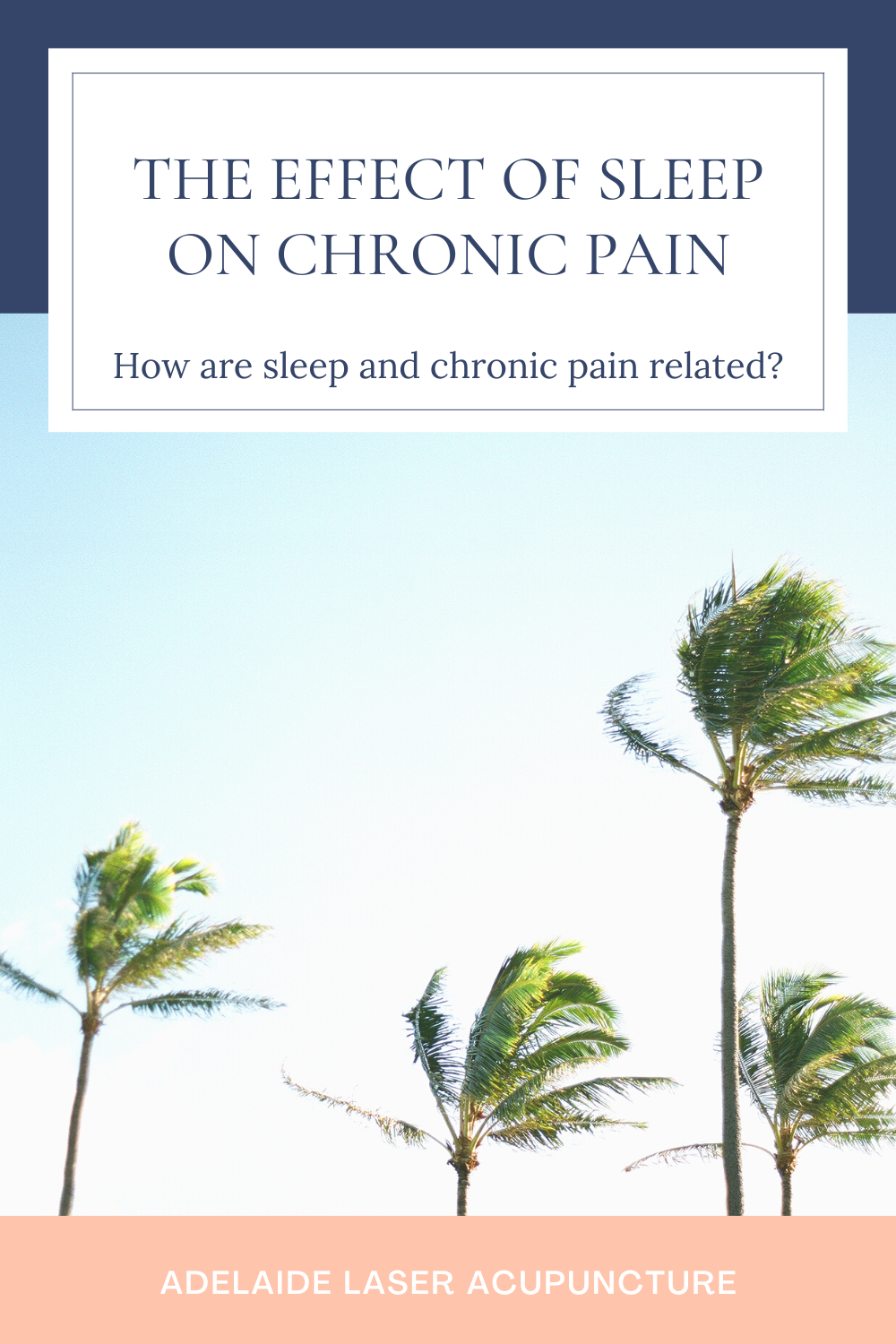The effect of sleep on chronic pain.
We all know the importance of a good night’s sleep. When we wake up after a good sleep, it can leave us feeling energised, refreshed, happy and with less pain than when you went to sleep.
But when you have a bad night’s sleep, it can sometimes feel like your pain is even worse than the night before!
You might even start to wonder whether the pain is worsening your sleep or the sleep worsening your pain?
The answer, research shows, is actually both. This is called a bi-directional relationship, and this relationship is incredibly important in managing chronic pain.
There have been numerous studies that show that poor sleep can be a risk factor for the development of chronic pain, increasing our sensitivity to pain, and for the creation of sudden pains including muscle pains and headaches.
Once pain appears, it can make it more difficult to sleep at night. This can create a vicious cycle of worsening pain leading to worsening sleep leading to even more pain, in what is called a positive feedback loop, even though there is little positive about it!
Despite this relationship between pain and sleep being well known, there is not much known about the ways that they interact with each other. There are some theories about them that have a lot of support.
Some of the mechanisms that underlie this connection include the opioid system, the pineal melatonin system, the serotonin system, the HPA axis, and quite a few others.
The research shows that taking opioid medication, the most prescribed medication for chronic pain, can disturb your sleep, leading to a worsening of chronic pain conditions. The same thing has been found to occur with SSRI’s, which are commonly taken for depression.
The pineal melatonin system was found to decrease melatonin, a chemical your brain makes to help you sleep, when exposed to even moderate light sources before going to sleep.
The HPA axis in our body responds to stress both physical and psychological, and was found to increase the level of inflammation in the body. This was triggered even by participants sleeping too little on weekdays and catching up on weekends.
So what can we do with this information? By understanding how our brain and body relate pain and sleep, there are a number of small changes we can make to improve our sleep, which can decrease our pain.
The first and simplest step is to try a mindfulness practice before you go to sleep at night. Using these practices was found to calm the mind, which released a cocktail of chemicals that decreased pain and increased sleep quality.
If you are taking SSRI’s or opioid medications, do not take it in the hours before you sleep. By taking them earlier in the day, it allows the body to manage the unwanted side effects of the medications before they can disrupt our sleep mechanisms.
Also, speak to your doctor about trying to decrease the dosage of these medications if you have really poor sleep. Research found that elevated doses of these medications could cause poorer sleep and worse pain.
We can also make sure that we limit our exposure to bright lights in the hours before we sleep. Research found that light as dim as 30 lux caused the body to suppress melatonin levels (normal work lights are around 300 lux, so not very bright at all!).
This was also found to be the case with screens. So limit screen time and use dim lights around the bedroom for at least an hour before you sleep, and use a dim light in the bathroom if you tend to use it in the night.
It is also really important to get regular sleep. The research on the HPA axis found that sleeping too little for a few days and then sleeping extra long after that increased the basal inflammation level in the body, which led to poorer sleep and increased pain. So unfortunately catching up on weekend may be doing you harm!
If you are able to implement some or all of these steps, you are on the way to developing good sleep hygiene! If you have never heard of sleep hygiene, look forward to another article about it in the future, because putting it in place can make all the difference.
Hopefully by using some of these tips, you can improve your sleep, lessen your amount of chronic pain, and lead a happier and more fulfilling life!
To find out more about any of this, read the wonderfully informative research below:
Sleep deficiency and chronic pain: potential underlying mechanisms and clinical implications
Until next time,
Muneer




0 Comments